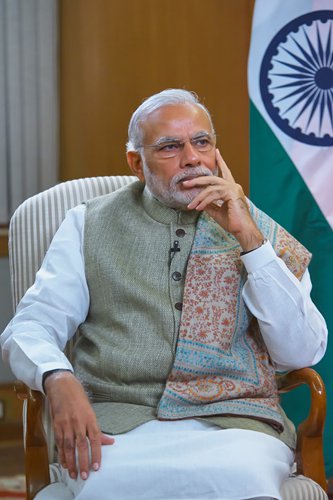Resurgent identity in ascendant India
By Ding Gang Source:Global Times Published: 2019/9/4 18:53:40

Photo: IC
Over the past more than 70 years since its independence in 1947, India has been facing the challenge of building national identity. It's widely believed that the move to revoke India-administered Jammu and Kashmir's autonomy by the government of Prime Minister Narendra Modi through constitutional amendments is a means of consolidating national identity.
Many other Asian countries, in fact, are facing the same challenge. Although countries in the region have their mainstream religions, they are multi-religious and multi-ethnic societies. For instance, according to Singaporean sinologist Leo Suryadinata, ethnic Chinese only account for about 4.05 percent of the population of Southeast Asia. The group is a small minority, but has played an important and indispensable role in the fields of economy, technology and science, and education.
Multi-religious and multi-ethnic countries actually have two options to build their national identity. One is to build it upon the mainstream religion. India, which tries to consolidate Hinduism as the basis of national identity, is an example. The other is to establish a political, economic and legal system to promote the harmonious coexistence of religions.
However, the reality is much more complicated than what such a rational analysis shows. Like most Southeast Asian countries, India had opted to establish a pluralist and secular system, but it was hard to pull it off.
So far, it seems harmonious coexistence among multiple ethnic groups and religions remains a utopia in many countries. Few countries in Asia have succeeded in making it come true.
There are varied reasons, both internal and external. It needs to be pointed out that at a time of accelerating globalization, resurgence of nationalism and religion has become a worldwide phenomenon. No country is an exception.
India has had a bigger influence on Southeast Asia than China in history. An Indian element pervades almost all cultures of Southeast Asian countries. The main channel through which India spread its civilization was religion, such as Buddhism and Hinduism.
We can see the influence of India in the temple of Angkor Wat in Siem Reap, Cambodia, built in the 12th century, and some temples that came up during the same period in Thailand. The languages of some Southeast Asian countries also have words that take from Sanskrit — the prominent language of ancient India.
However, Buddhism, which was born in India and spread to the world, was actually elbowed out from the country by Hinduism in history. This is different from the development of Indian civilization, which is believed to have been brought into the country by Aryan invaders from the north — specifically the area around the Caspian Sea comprising modern Georgia, Armenia and parts of Iran.
After Buddhism came to Southeast Asia, it integrated with the local culture rather than overpower it. It then developed into a rival of Hinduism and even confronted the Brahmanical fate in some places. Islam had a similar experience with Buddhism in India.
The growing strength of Hinduism in India made the Indian subcontinent a curtain that blocked the spread of Islam and other religions to the east. This has given India more geopolitical importance, but made it harder for multiple faiths to exist peacefully.
Many countries in the region are striving to build a multiethnic and multi-religious structure, but religious and national awareness have strongly rebounded under the pressure of globalization. It is not an easy call for these countries' leaders to make.
We would like to regard Modi's decision on Kashmir as a trial, which will greatly impact global geopolitics. Neighboring countries of India will therefore keep an eye on what the future holds for Modi's decision and the socioeconomic consequences it brings.
The author is a senior editor with People's Daily, and currently a senior fellow with the Chongyang Institute for Financial Studies at Renmin University of China. dinggang@globaltimes.com.cn. Follow him on Twitter @dinggangchina
Posted in: COLUMNISTS,CHINA-INDIA